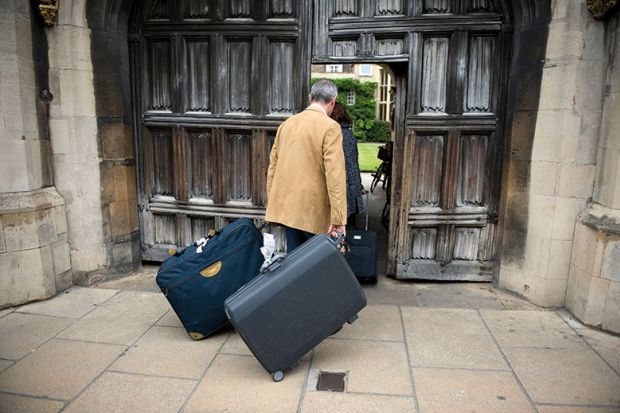Undergraduate degrees where students live away from home for three years “should not be the norm”, England’s universities minister has said.
Giving evidence to the House of Commons Education Committee’s inquiry into value for money at universities on 24 April, Sam Gyimah said that he considered the traditional three-year degree taken by most UK undergraduates “quite an old model” and that he wanted universities to be more “fleet of foot” by offering alternative qualifications, such as intensive two-year honours degrees and degree apprenticeships.
“For universities to still carry on as if we are still in 1965 is not acceptable,” said Mr Gyimah, adding that there “should be more dynamism in the market”.
“I would not use the term ‘outdated’, but I think the norm of the undergraduate experience should not be three years on campus [and living] away from home,” said Mr Gyimah, who described the UK sector as “very monolithic” and “not very joined up”.
With roughly 50 per cent of young people now attending university, new opportunities were required to increase higher education engagement, added Mr Gyimah.
“As you increase the number of students who potentially go to university, you need different solutions for different types of students,” he said.
Mr Gyimah, who was appointed minister for universities and science in January, said that he was “encouraged” by innovative practice due to be adopted at new providers such as the New Model in Technology and Engineering (NMITE), the engineering university that is expected to open in Hereford in 2020, which will not require students to have physics and maths A levels in a bid to encourage more women into engineering.
“I want a higher education sector which is more inclusive…and a system which is more responsive to students,” he said, although he admitted that there was much “good practice not acknowledged” in universities.
Mr Gyimah also told MPs that he was keen for commercial providers to use institutional data to create a “MoneySuperMarket-style” comparison tool for courses as part of efforts to improve information, advice and guidance to potential students, adding that he was shocked to meet a student who had “no idea what a Russell Group university is”.
Mr Gyimah, who studied philosophy, politics and economics (PPE) at Somerville College, Oxford, also related how he “would have been thrown out of university” because he could not afford his rent.
“The only way I managed to survive and carry on was because the college converted my rent into a loan, which I paid when I left,” said Mr Gyimah, a comprehensive school pupil who later became president of the Oxford Union debating society.
“Now, a personal anecdote is never the best foundation for policy – but I can describe my own experience as the first kind of maintenance loan which got me through university,” he said.




